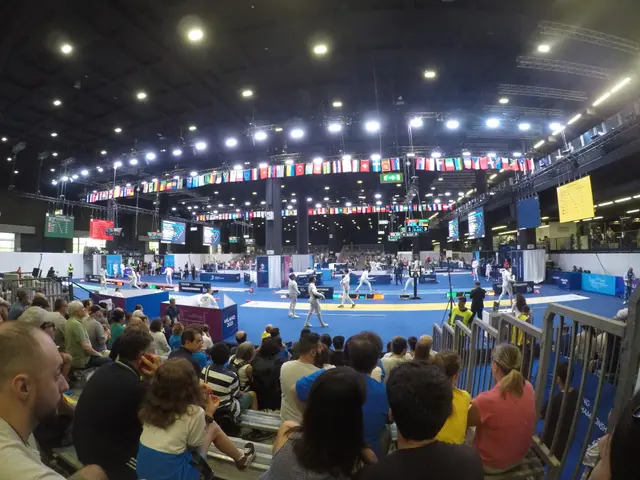Taiwan contemplates potential Chinese invasion depicted in media and games
In the world of entertainment, a new Taiwanese series titled Zero Day Attack has caused quite a stir. Upon its premiere, the series topped drama rankings, but not without controversy. The series, which is supported by the Taiwanese government, depicts a fictional Chinese military invasion of Taiwan in 2028, stirring intense debate both domestically and internationally.
Historically, Taiwanese media has avoided direct portrayals of conflict with China to maintain access to China's media market. However, Zero Day Attack represents a notable shift towards openly confronting the threat, despite potential commercial and political consequences.
The series takes viewers through a narrative of a Chinese naval blockade and internal unrest incited by sympathizers, all while a newly elected Taiwanese president is about to take office. The concept for the series was developed through research and consultation with national security experts.
Critics argue that the series artificially stokes fear and political tension, while supporters see it as a necessary warning and preparation tool for Taiwanese society. China’s government has condemned the series as fear-mongering and provocative, accusing Taiwan’s ruling party of stirring anxieties and pushing for conflict.
Taiwan's main opposition Kuomintang (KMT) has accused the ruling Democratic Progressive Party (DPP) of using public funds to promote a "sense of national doom" with the series' trailer sparking controversy domestically. On the other hand, the series received a standing ovation at the Copenhagen Democracy Summit in Denmark, reflecting international support for its message.
Another board game, "Reversed Front," adds to the conversation. This game allows players to infiltrate the Chinese Communist Party from Taiwan, Hong Kong, or other surrounding areas, setting the invasion in 2045, with Taiwan dividing into six different forces. The mobile game "Reversed Front" was banned in Hong Kong for allegedly violating the National Security Law.
The controversy surrounding these works raises questions about the psychological impact they may have on the public. Some argue they could increase public anxiety, while others see them as pragmatic defense awareness measures. As Tammy Lin, a professor at Taiwan's National Chengchi University, noted, the topic of a Chinese invasion, as depicted in games like "2045," is a nightmare-level topic for Taiwanese people.
In the midst of this debate, it is clear that the portrayal of a Chinese invasion is no longer a taboo topic in Taiwan. A trend is emerging where imagining a Chinese invasion is becoming more common, as reflected by the emergence of Zero Day Attack and "Reversed Front." Whether this trend will foster rational dialogue or escalate societal fear and cross-strait tensions remains to be seen.
- The government of Asia, specifically Taiwan, has taken a significant step in the realm of entertainment with the release of the new series Zero Day Attack, stirring both domestic and international debates.
- In line with this, a new board game titled "Reversed Front" has joined the conversation, depicting a Chinese invasion scenario in 2045, sparking controversy in surrounding areas like Hong Kong.
- The Taiwanese series and the board game are part of a growing trend of portraying Chinese invasion in the media, a topic once considered taboo.
- While critics argue that these works artificially stoke fear and tension, supporters view them as necessary warning and preparation tools for society.
- On a political note, the ruling Democratic Progressive Party (DPP) in Taiwan has been accused of promoting a "sense of national doom" with the series, while the main opposition Kuomintang (KMT) shares similar sentiments.
- Conversely, the series received international support at the Copenhagen Democracy Summit, reflecting global perspectives on its message.
- Amidst these debates, there remains a question about the psychological impact of such entertainment and its potential to increase public anxiety.
- not to forget, the world of sports and sports-betting has also been swept up in this geopolitical tension with popular events like basketball and the NBA following closely.
- As for pop-culture, sci-fi and fantasy enthusiasts are engaging in discussions about the depiction of war, conflicts, and invasion in their favorite stories.
- Additionally, the field of crime and justice is examining the role of media in shaping public opinion on these contentious topics.
- Lastly, weather forecasting is essential in such geopolitical situations, as accurate weather predictions are crucial for the safety and preparedness of people across Asia.







